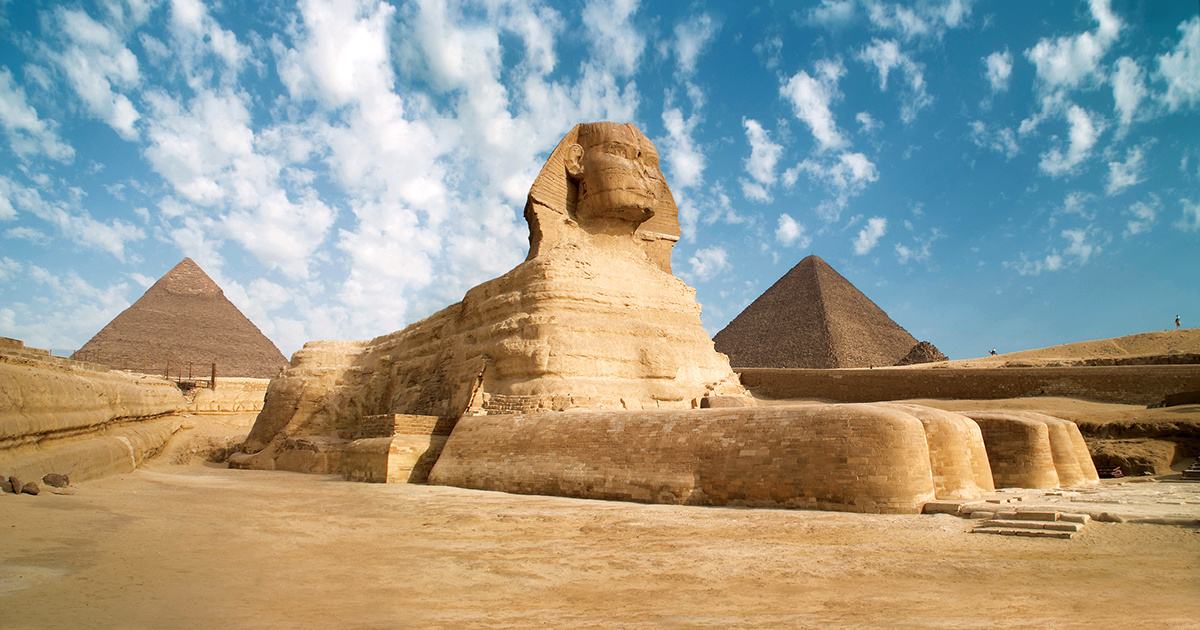
New Evidence Suggests Ancient Egypt Was Brought Down by Volcanoes and Climate Change

Ancient Egypt is often described as an exotic place—pyramids, hieroglyphics, lavishly worshipped kings and queens.
But in many ways, it has a lot of parallels to modern life. It was an economically diverse, culturally vibrant and unequal place.
The millenniums-old society also struggled with a phenomenon that people today know all too well: climate change. And it may have ultimately led to the civilization’s demise, according to a new paper by a team of researchers at Yale University.
The team of researchers studied the tail-end of ancient Egypt during the Ptolemaic dynasty between 305-30 BCE.
Their research shows how climate change can stress a society, causing a chain reaction of drought, famine, instability and conflict, and it provides useful lessons for the urgency of acting to avert such developments today.
Ancient Egypt was dependent on floodwaters from the Nile River to irrigate crops that could feed society, the report explains. When the region faced drought, crop yields would plummet and cause widespread unrest.
The researchers were able to determine that the worst of these droughts were caused by volcanic eruptions, which released sulfurous gases into the atmosphere, altering precipitation patterns and disrupting seasonal monsoons.
Because this period of ancient Egypt was well-documented, the researchers were able to correspondingly chart volcanic eruptions with periods of conflict.
“In years influenced by volcanic eruptions, Nile flooding was generally diminished, leading to social stress that could trigger unrest and have other political and economic consequences,”Joseph Manning, a professor at Yale and lead author on the paper, said in a press release.
This dynamic mirrors on a local level what’s happening on a global level today. More than 70 percent of the world’s population is dependent on consistent monsoon seasons, according to the researchers, and the accumulation of greenhouse gas emissions in the atmosphere is destabilizing precipitation patterns, putting the livelihoods of billions of people at risk.
As critical resources are compromised through drought, heatwaves, extreme weather and other factors, military experts fear that the ensuing instability could cause conflict.
The example of ancient Egypt provides a sobering example that such conflict is possible.
The U.S. Department of Defense refers to climate change as a “threat multiplier,” meaning that it can put pressure on existing societal tensions, accelerating the likelihood of conflict.
That’s basically what happened in ancient Egypt, argue the researchers.
“Diminished Nile flooding acted to trigger revolts and constrain Ptolemaic war making … explaining that the shocks from poor Nile flooding would have occurred against a background of multiple socioeconomic and political difficulties that would have compounded the impacts of Nile variability,” the press release states.
There’s one key difference between now and then, however. The climate change faced by ancient Egypt was caused by volcanic eruptions. Today’s climate change is driven by human activities that release greenhouse gas emissions.
And the world’s current predicament would be worsened by another large-scale volcanic eruption—which the team at Yale says we’re long overdue for.
“Sooner or later we will experience a large volcanic eruption, and perhaps a cluster of them, that will act to exacerbate drought in sensitive parts of the world,” said Manning.
Global Citizen campaigns on the Global Goals, which call for strong climate action. You can take action on this issue here.
Reposted with permission from our media associate Global Citizen.

 233k
233k  41k
41k  Subscribe
Subscribe 